Some people take a walk to have time to think. Others walk to take time NOT to think, but to dream. Whichever category you fall into, Thinker or Dreamer, Ritchey Woods Nature Preserve has 2.25 miles of winter trails that await the sound of your footsteps.
Heading down the gravel path from the parking area, a trail begins that bisects a prairie habitat on the south with a forest habitat on the north. Chances are a chickadee, acting as gatekeeper, will announce your presence. My favorite forest friend, this roly-poly-bird-turned-acrobat spends winter days looking for berries and seeds in the absence of the insect population. Their Welcome Wagon ditty signals the beginning of your loop trail to a swamp wetland.
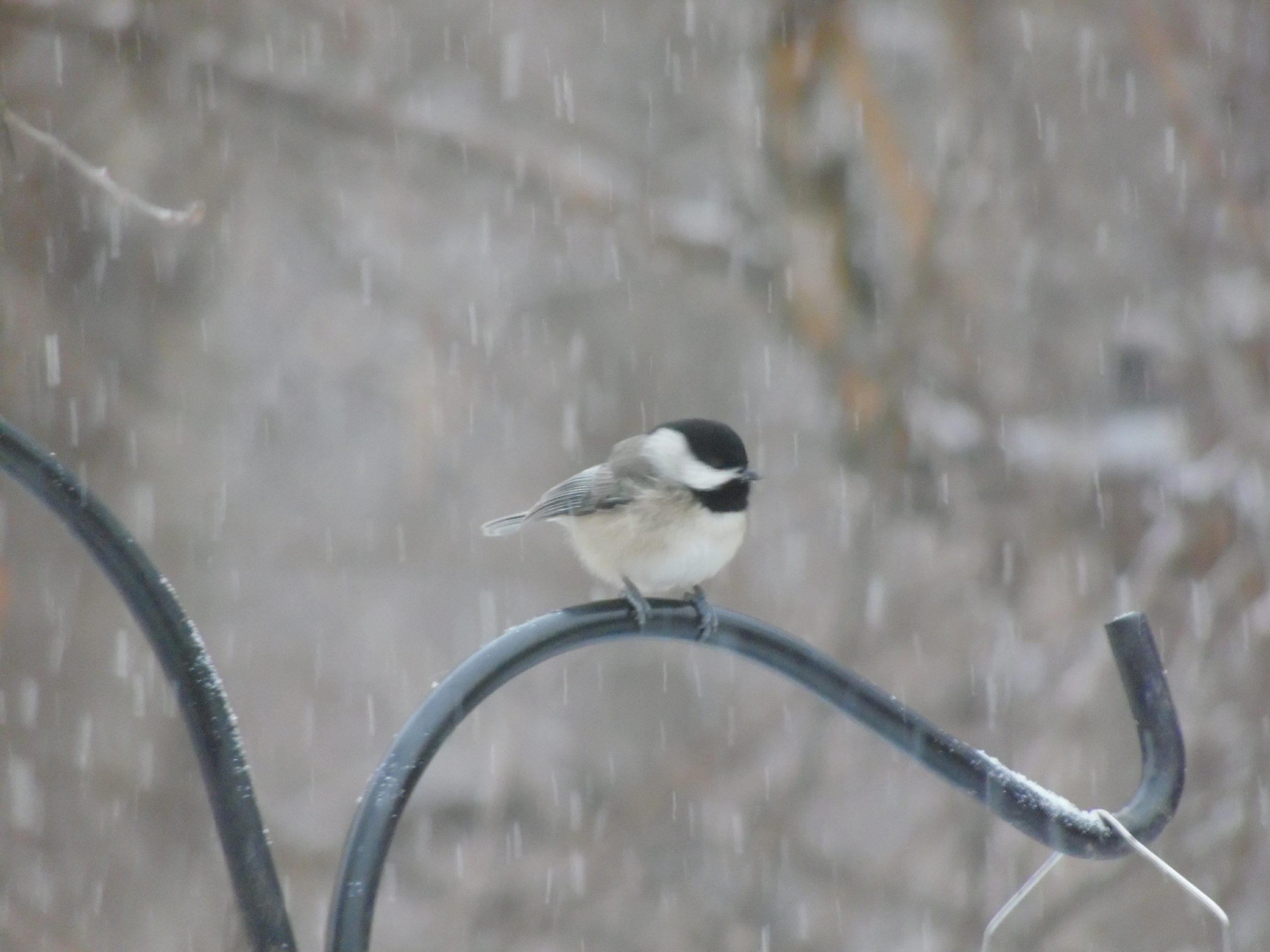
As you pass the picnic shelter area, keenly scan the forest for deer decked out for winter in their dull gray overcoats. White-tailed deer are the largest wild mammals in Indiana and are often seen in all areas of Ritchey Woods.
Just like me, deer are herbivores. I’ll spend cold months feasting on veggie stews and ciabatta buns, while deer feed on a winter diet of acorns, twigs, and buds of woody plants. With their keen sense of sight, smell, and hearing, chances are they will spot you before you spot them. They will wave at you with their white tails as they quickly exit to a more secluded area.
Deer hair is hollow and filled with air to keep them well insulated on cold winter days. Zip up your down-filled parka and keep walking!
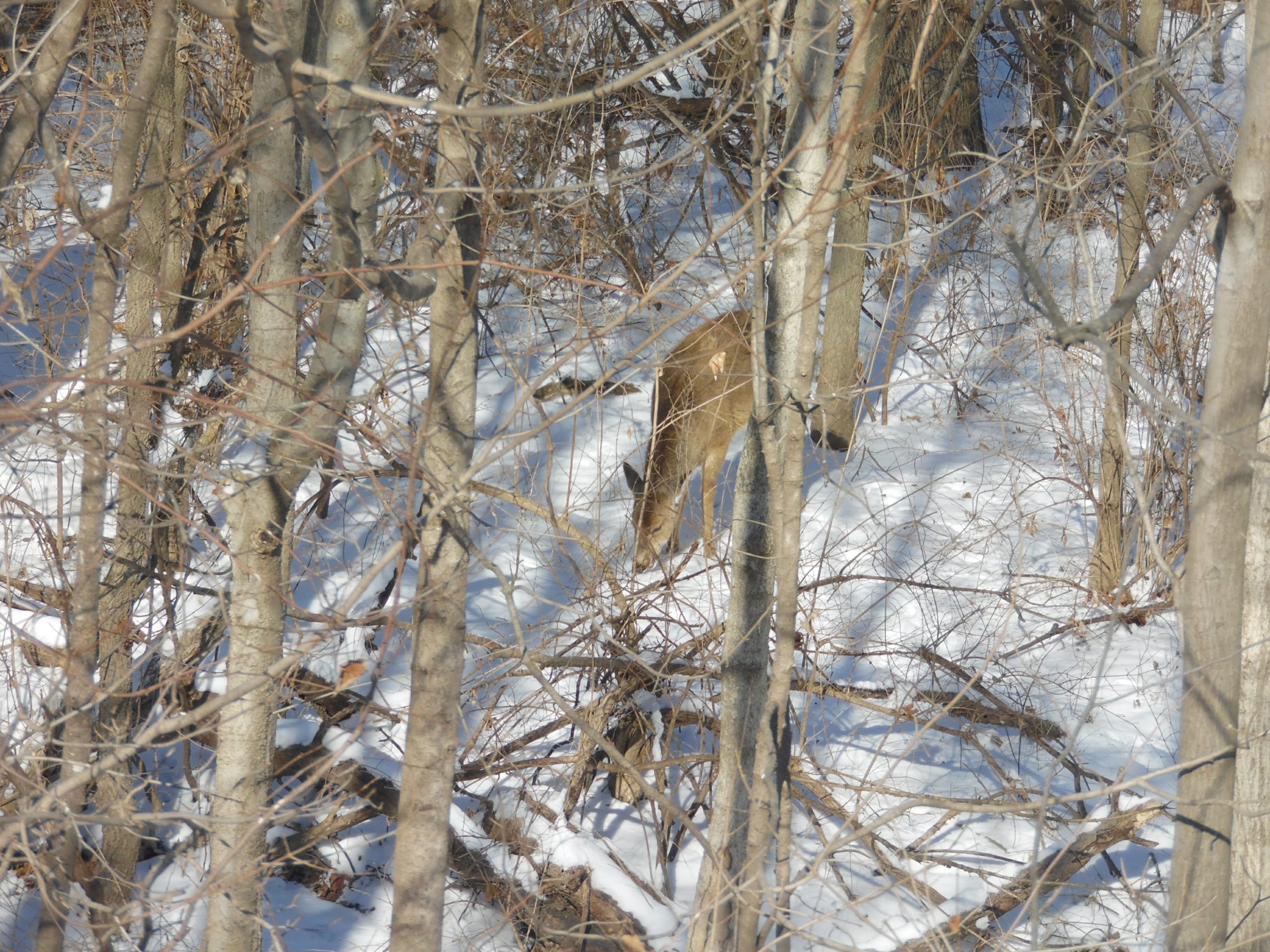
When you reach the bridge that crosses Hare Creek, you will want to linger and check out the topography of the forest. If nature’s summer highlights are color and shape, then surely texture and detail are the pinnacle of winter! From your bridge vantage point, ridgelines unfold and tree trunks brandish their subtle color and surface variances. Take it all in. You Thinkers might want to learn to identify trees by the bark. Dreamers will want to learn to sketch the stark beauty.
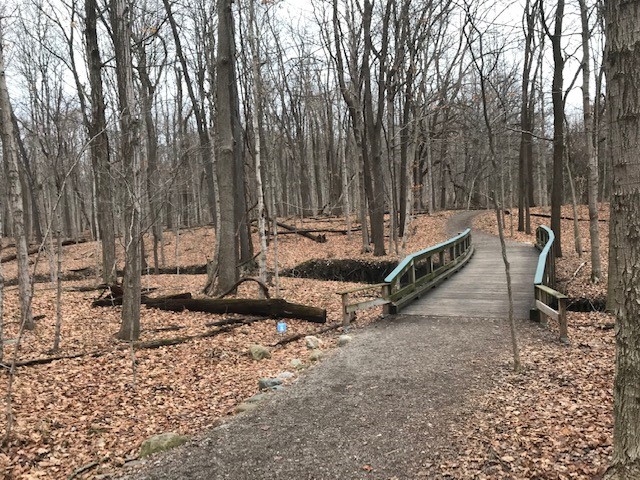
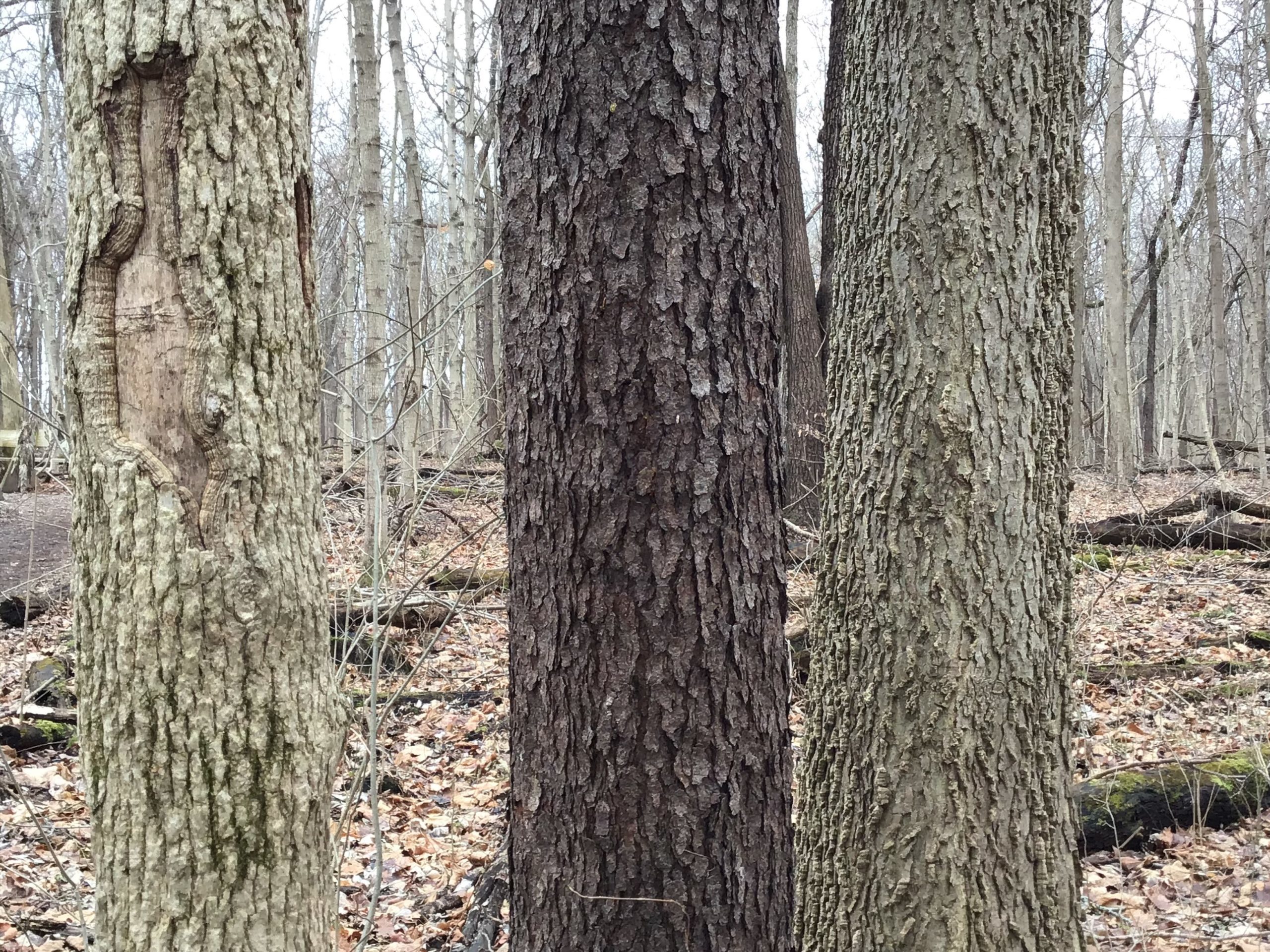
Hasten on and snake your way past thickets dense with common winter visitors from the north: dark-eyed juncos. Among the most abundant forest birds in North America, you’ll catch sight of their white outer tail feathers as the juncos quickly flit away like children on a school playground when the whistle signals recess is over!
Tucked back in this shrub layer you may also spot our Indiana state bird – the cardinal. In other seasons cardinals typically move in pairs, but in winter they may form larger groups of a dozen or more. While the male cardinal’s bright red color will help him lure a mate to this same thicket in spring, his scarlet flare now serves as a beacon of hope in winter’s tiresome landscape.
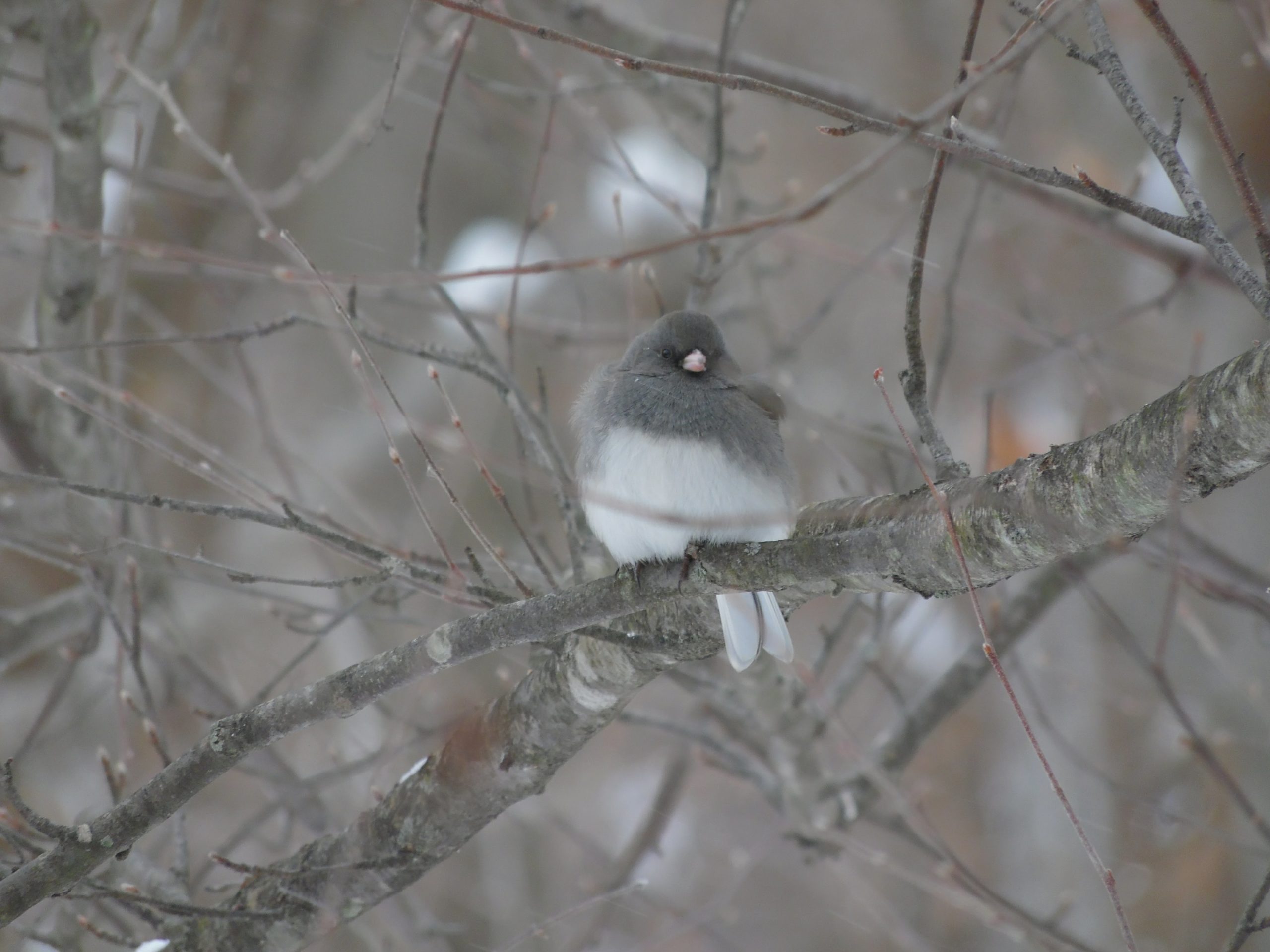
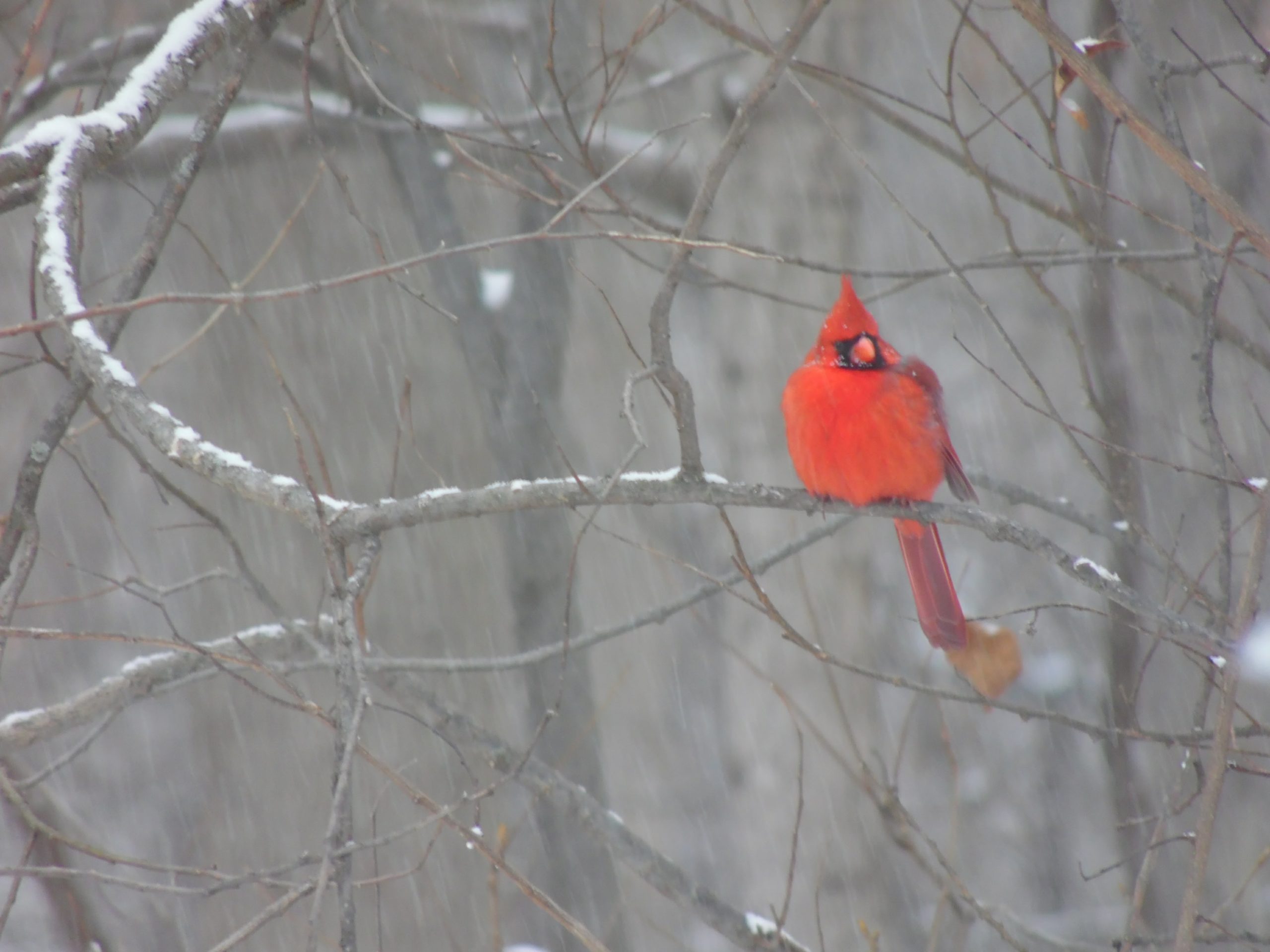
At last you will reach the swamp boardwalk which will keep your feet dry as at loops through the lovely wetland. Conjuring up images of alligators when told they are heading to the swamp, my grandkids secretly aren’t disappointed when none appear, especially as I explain about the kinds of invertebrates that will call this wetland home when warmer days approach.
Technically, a swamp is just any wetland dominated by woody plants. Indeed, huge cottonwood trees with their thick, wrinkly bark stand guard here with their trunks submerged. My good friend explains it this way, “this native Indiana tree likes to get its feet wet.” She’s a Thinker and a Dreamer.
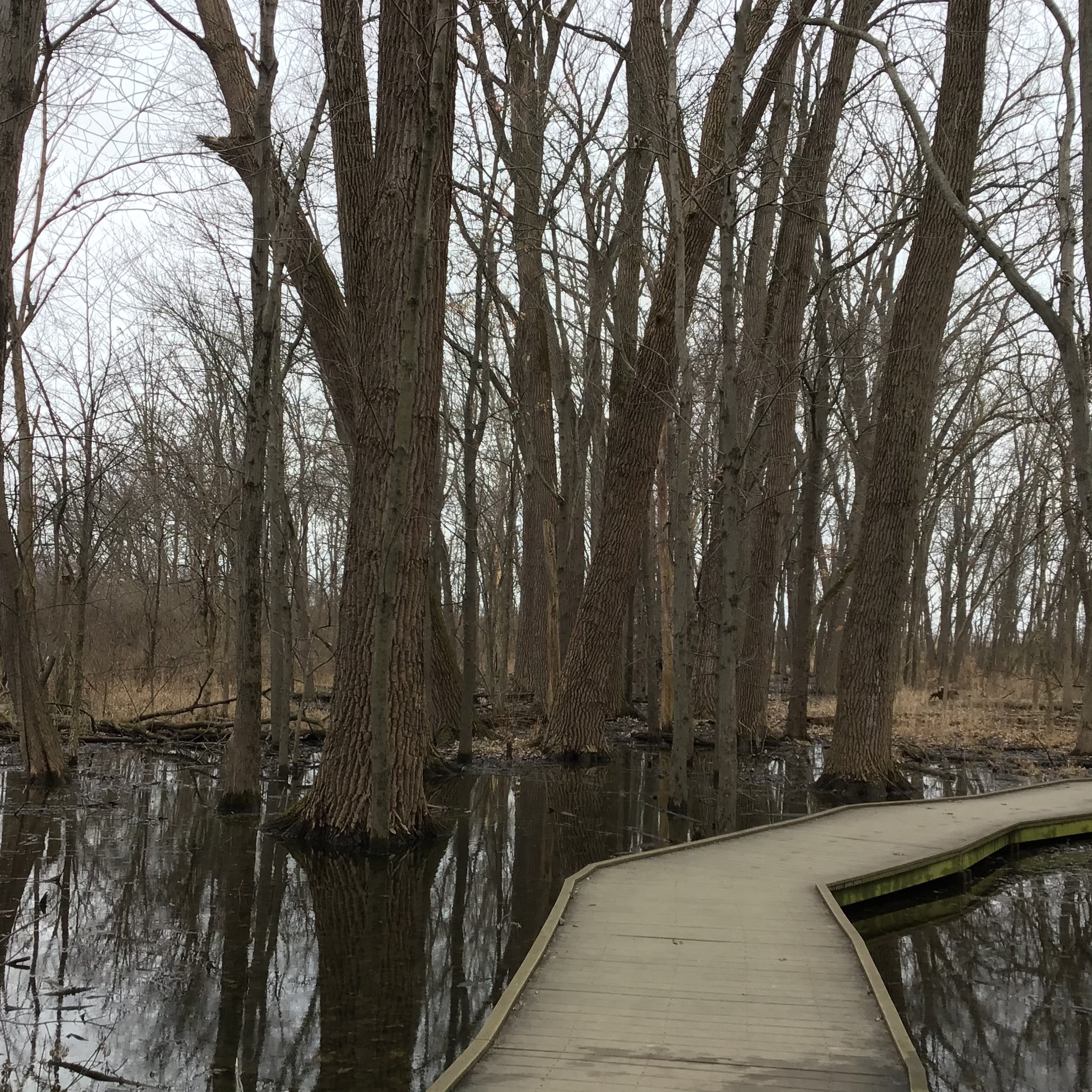
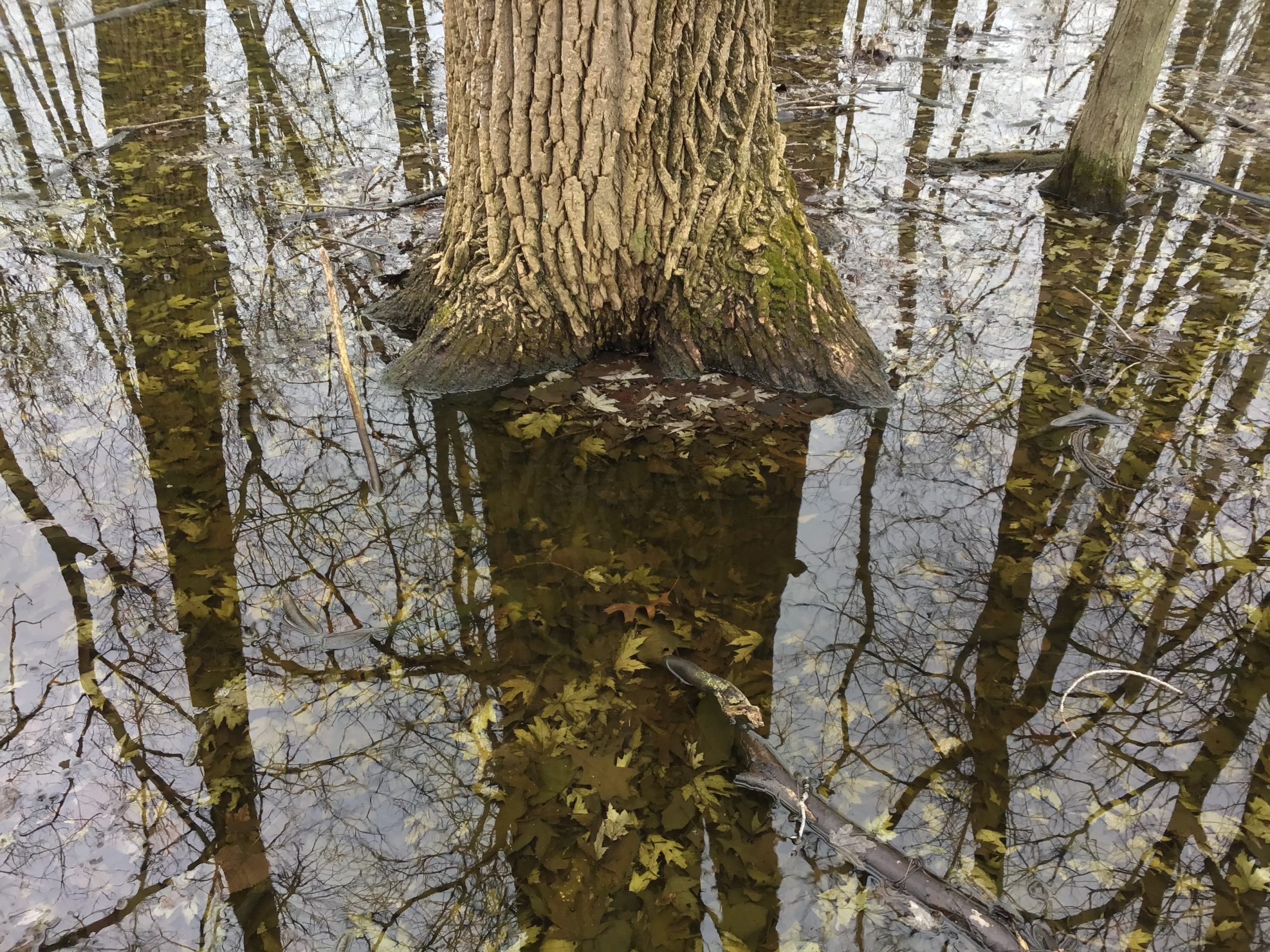
As you step off the boardwalk, you reverse course. All in all, you will cover almost a mile of pure Fishers beauty, or even more if you decide to take a detour on other trails that lead into the forest or prairie. So come on out you Thinkers and Dreamers – winter is a wonderful time to enjoy a walk at this Fishers gem!
Want to explore Ritchey Woods Nature Preserve more? Check out the Fishers Parks Director’s top 5 favorite things to do at Ritchey Woods.
Wildlife photos courtesy of Susan Davis.
Amy Risinger is the Environmental Education Coordinator for Fishers Parks. After retiring as an HSE educator, she joined the Parks Department in 2019. She leads the Nature First program, a partnership between the City of Fishers and Hamilton Southeastern Schools that helps first graders develop a sense of wonder and stewardship about their local natural environment. A Fishers resident for the past 36 years, Amy feels fortunate to be able to share her love of the outdoors and her devotion to science education with the community, as well as her four grandchildren. Most days you can find her and her husband, Jeff, outside looking down at plants, rocks, and insects or looking up at clouds, stars, and trees, as well as hunting for the best pizza in Fishers!

